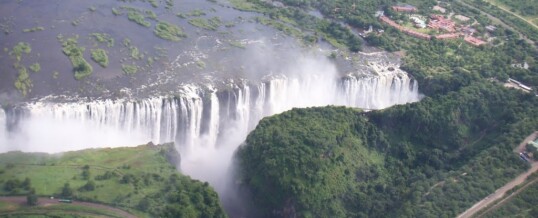This from TNooz grabbed my attention. Incidentally if you’re in the travel or hospitality business TNooz is, in my opinion, a daily ‘must read’. Why did this particular piece demand my immediate attention? Well, we’ve had a Chanters Lodge Blog since 2006, not so long ago I wrote to my son Ed and told him I was fed up with blogging and what with Facebook, Twitter and things I was considering giving up.
Here’s the piece from Patrick Landman.
“I can’t even begin to remember the number of times I have heard hoteliers talk about the need to get more direct business, preferably through their own hotel websites. Of course, this is something we want for all our hotels. We know that direct-sales brings a higher margin to the bottom line, rather than via reservations (with commission) to third party distributors like OTA or low net rate wholesalers and tour operators. But then why are so many hotel websites still, well, static when it comes to content, especially many of the independently-owned properties.
Hoteliers invest in a website and think that is it for the next three, four or even five years. They still view the internet as a business of online brochures apparently. Their website’s content is completely static or stagnant.
Why?
It is a well-known fact that search engines put a high value on dynamic and fresh content. They are looking for websites that are constantly adding new information relevant to their field or related to their brand. This should actually be fairly easy for a hotel. Tourism and travel is an amazingly dynamic industry, especially when looking at what is happening in a destination or the property itself. Websites, lest we forget, are a continual effort. The content of your hotel website needs to be dynamic. This is where a corporate blog comes into play.
It should be part of your communication strategy to your guests, as well as potential bookers. Moreover it is also a tool to build a network of connections engaging with your local community. Unfortunately it seems though there is some sort of industry disease, or apathy towards social media. Any creative effort of direct marketing in hotels is approached with distrust, fear and skepticism.
However, the reality is that you might spend a lot of money on your hotel website, but if you don’t have a blog much of it never changes. Your hotel website is dead. Hoteliers, please wake up, and start blogging now! Or else.
Ideas
But what to write? How to blog? If you don’t know, try it out. Make a blog using WordPress or Blogger, and integrate it. It’s as simple as writing an email. Honestly. In terms of topics, there should be no shortage of what you could write about. There surely are interesting events, festivals or trade-shows in your destination that your guests visit or attend. And how about some restaurant and bar tips? Find out which shops your guests like and make some more related recommendations.
Ah-ha, that should be easy, right? Really it is, I am even doing it right now. I am typing as I am thinking… It is as easy as writing an email or recommending guests staying at your hotel on what they can do in town. In short, become the online concierge of your hotel.
Make sure that you create original content, though, and are not simply punching out lists and articles for the sake of blogging. Make the blog an extended arm of your hotels atmosphere and style. Give it a unique spin. Instead of focusing only on main attractions and points of interest, highlight personal recommendations, unknown gems and hidden secrets of your destination. Bars, restaurants and shops within walking distance of the hotel are always well appreciated.
Craft
I mentioned style before. Make it personal. Not just a simple tourist guide approach. Introduce some humor and fun, I am sure as a hotelier you have an outgoing character, and are used to being on stage. Do the same on your blog. Don’t be afraid of what people think. The mission is to set a tone and get noticed.
The angle you choose, accompanied by captivating headline, catches the interest of guests. Come on, admit it this title “If you don’t have a blog, your hotel website is dead!” surely got you to click and read some more. The objectives with integrating blogs into hotel websites are many. One is to ensure the dynamics in content creation for the hotel website, and for search engines continue to value the authority of our website in relation to our location.
Also it provides valuable tourist and destination information to our guests. Blogs provides hotels with original content to share on social media websites and allow properties to engage with local business and attractions on social media websites. Remember, do not write solely about destination-related information. Updates on what is going on in the property is also newsworthy. But these articles should not be in the style of a boring press release. It should be an authentic personal piece. Write it the way you would explain it to a friend.
Treat your guests less like a technical marketing object and more like a guest works amazingly well.
Furthermore, put your staff in the spotlight. Have them explain what they like about working at the hotel, and what their favorite places in town are. Add a fun picture so guests can recognize them during their stay (please, no boring head-shots! ). And how about the launch of a new seasonal menu in the restaurant?
Slow-burn
Blogging is a matter of practice – as you write more you get better at it. Find some other blogs and follow them. Search for inspiration online. There is no need to reinvent the wheel. But make sure you add your personal touch to it.



















